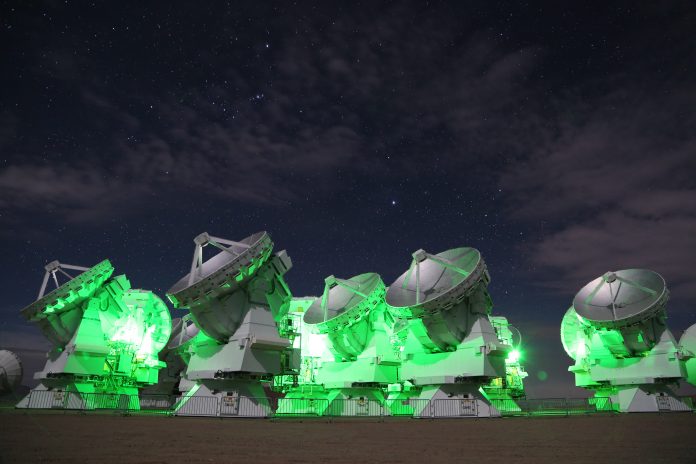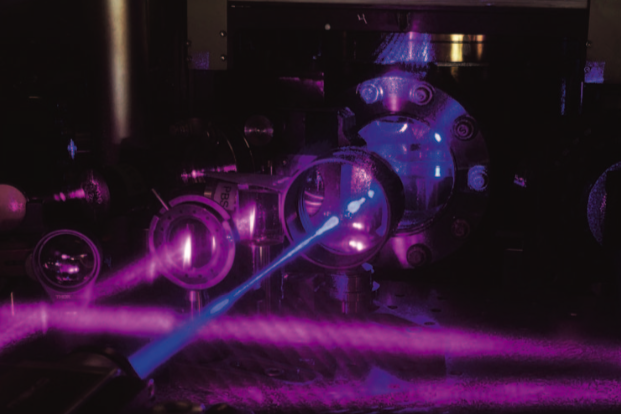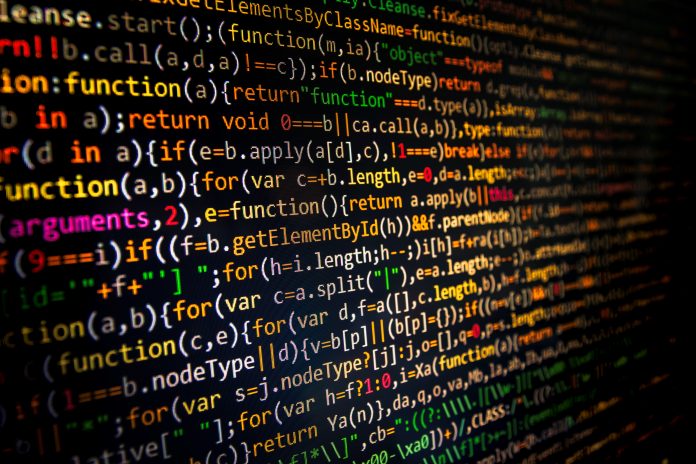Open Access Government produces compelling and informative news, publications, eBooks, and academic research articles for the public and private sector looking at health, diseases & conditions, workplace, research & innovation, digital transformation, government policy, environment, agriculture, energy, transport and more.
Home Search
quantum science - search results
If you're not happy with the results, please do another search
Data-centric cyberinfrastructures for academic ultra-clean scientific laboratories
Klara Nahrstedt, Professor and Director of Coordinated Science Laboratory at the University of Illinois, Urbana-Champaign, and her collaborators explore how data-centric cyberinfrastructures in academic ultra-clean scientific laboratories help speed-up next generation inventions.
Excellence in atomic films
Noureddine Adjeroud from Luxembourg Institute of Science and Technology, argues here that nanomaterials are present in our daily life.
New Ideotype of Rice with Improved Water-use Efficiency
Professor Apichart Vanavichit discusses the importance of rice crop and developments in rice production in light of the growing need of water efficiency.
Canada: From isolation to innovation
Open Access Government chart Canada’s innovation priorities in its recovery plan from the COVID-19 pandemic.
Einstein Telescope: A unique chance for Europe
Nikhef Researcher Jo Van Den Brand takes us on a journey towards a European gravitational wave observatory with the establishment of Einstein Telescope.
Physics: Unveiling the secrets of new particles
Here, Katri Huitu and Kenneth Österberg from the Helsinki Institute of Physics, Finland, discuss an important discovery of the Odderon and related activities of the Institute searching for the secrets of new particles and fundamental laws of Nature.
Astronomy: Discovering the Universe with cutting-edge technology
Saku Tsuneta, National Astronomical Observatory of Japan, charts discoveries made about the Universe with cutting-edge technology in this fascinating astronomy focus.
The unsolvability of the mind-body problem enables free will
Jan Scheffel, Professor from KTH Royal Institute of Technology, Sweden, argues that the insolvability of the mind-body problem enables free will.
Scientists have calculated the mass range for Dark Matter for the first time
Researchers from the University of Sussex have calculated the mass range for Dark Matter for the first time and it is much tighter than thought.
Could tiny pendulums be the way to detect dark matter?
Researchers at the National Institute of Standards and Technology (NIST) and their colleagues have proposed a novel method for detecting dark matter.
Physics: Crucial questions about structure and our world
Denise Caldwell, Director, Division of Physics U.S. National Science Foundation (NSF), sheds light on research that addresses the most fundamental questions surrounding the structure and inner workings of our world.
Chemistry research: Driving discovery and development
The Division of Chemistry at the National Science Foundation, provides an update on their work in driving discovery and development concerning chemistry research that improves the quality of life in the United States.
Strengthening research and innovation in Switzerland
Writer Megan Warrender looks at strengthening research and innovation in strategically important areas such as automation, antibiotic resistance and quantum technology.
Magnetic resonance for detecting ground and soil water
Dr. Stephan Costabel, Federal Institute for Geosciences and Resources, and Prof. Dr. Mike Müller-Petke, Leibniz-Institute for Applied Geosciences, discuss the use of magnetic resonance for soil moisture mapping.
Computing and mathematics: Forever entwined
Dr John Yardley, Managing Director of Threads Software Ltd, outlines why the fields of computing and mathematics are so closely linked.
The Moonshot Research and Development Program: Challenging research and development towards the future
Hirai Takuya, Member of the House of Representatives and former Minister of State for Science and Technology Policy in Japan, shares his thoughts on The Moonshot Research and Development Program, that challenges research and development towards the future.
Physics: Nuclear Density Functional Theory determining properties of atomic nuclei
The Nuclear Theory Group at the University of York, United Kingdom, develops novel theoretical methods for a precise description of ground and exited nuclear states, more of which is explained here by Jacek Dobaczewski, Chair in Theoretical Nuclear Physics.
Physics: Building for discovery in the global context
Jim Siegrist, Associate Director for High Energy Physics at the Office of Science, U.S. Department of Energy details how the organisation is building for discovery, using the excellent example of their High Energy Physics program.
Advancing basic chemical research while developing a globally competitive workforce
Carol Bessel and Melissa Olson from National Science Foundation’s Division of Chemistry (CHE) reveal the organisation’s goal of advancing basic chemical research while also developing a globally competitive workforce.
Microfluidic devices: The future is here
Dr Stefan H. Bossmann and Dr Christopher T. Culbertson, Professors of Chemistry at Kansas State University, explain why microfluidic devices are in their view, the future.





















